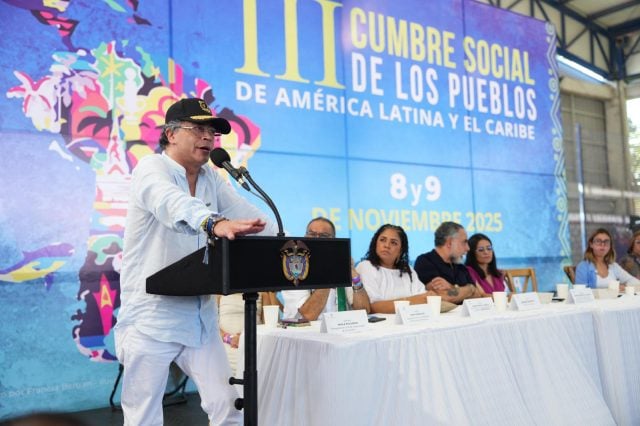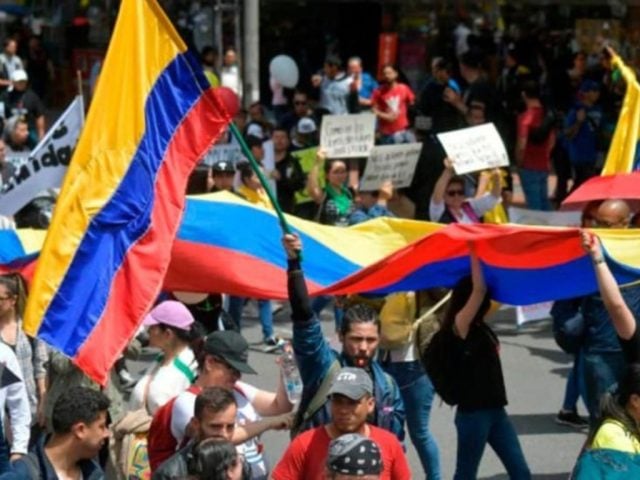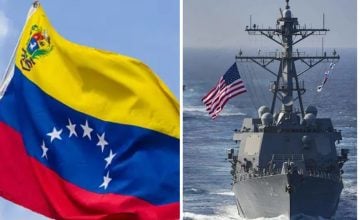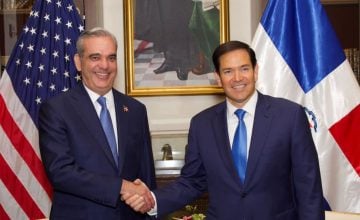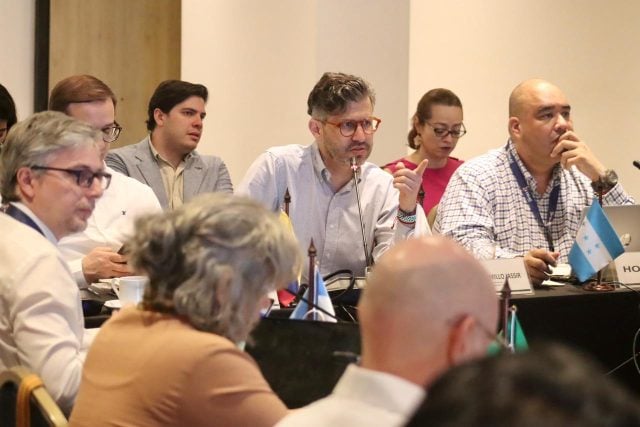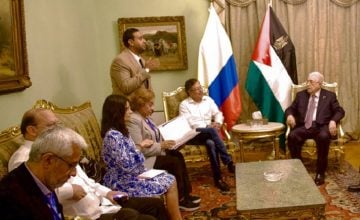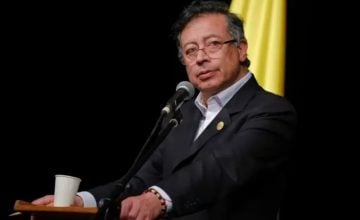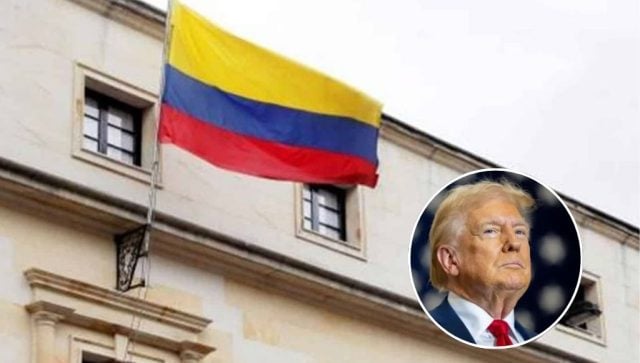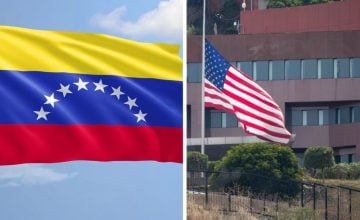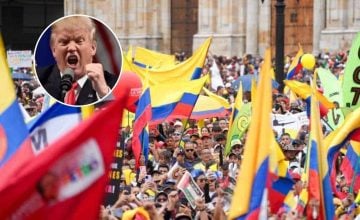Original article: III Cumbre de los Pueblos: Revivir una Gran Colombia de toda la Patria Grande
By Sasi Alejandre
At the III Social Summit of the Peoples of Latin America and the Caribbean held in Santa Marta, Colombia, President Gustavo Petro issued a rallying cry to all of Latin America: to resurrect the dream of Bolívar in a new era of Gran Colombia.
He proclaimed: “By the hands of enslaved black people who became free, the first flag of the Caribbean was created: yellow, blue, and red, which ended up being the flag of Gran Colombia. A flag that should never have been lost, and still resides in our hearts, despite our divisions.”
The Caribbean today faces siege from the United States—not as an abstract force, but as part of the America to which it belongs: Our America. Simón Bolívar expressed this sentiment in his letter to the Congress of Panama in 1826: “I wish that the peoples of America unite in such a way that if one is attacked, all will come to its defense.” This dichotomy, once again prevalent as in Bolívar’s time, will dictate the future of the Latin American region: whether to adhere to the Monroe Doctrine of “America for the Americans,” or, conversely, the vision of Gran Patria and Latin American unity.
This unity is not only called for among the nations that constituted, however briefly in 1821, the Gran Colombia referred to by President Petro: Colombia, Ecuador, Panama, and Venezuela, but among all the peoples of the entire Latin American region.
The call for consolidation of unity, as proclaimed at the third edition of the Social Summit during this IV CELAC (Community of Latin American and Caribbean States) Summit, directly references the fundamental reason for the establishment of this organization.
As Venezuelan President Nicolás Maduro recalled in his letter sent to his counterparts gathered in Santa Marta, CELAC was founded in 2011 in Caracas. This moment came a couple of years before the death of President Hugo Chávez, during a time when the Bolivarian Revolution was already consolidated, and the region was still experiencing the peak of the so-called red wave, wherein victories in Venezuela triggered electoral wins for the left in several countries across Latin America, including Rafael Correa in Ecuador, Evo Morales in Bolivia, Fernando Lugo in Paraguay, Cristina Kirchner in Argentina, and Dilma Rousseff in Brazil.
Thus, having already created ALBA (Bolivarian Alliance for the Peoples of Our America), Petrocaribe, and UNASUR, as one of the last significant regional initiatives proposed by Hugo Chávez before his death, he advances the idea of an integration mechanism independent from both the United States and the OAS (Organization of American States), marking the genesis of CELAC.
Initially, CELAC was comprised of the 33 nations of Latin America, regardless of ideological differences, all agreeing at least on the principles of sovereignty and self-determination as the foundation of the community of states. However, unlike in 2011, there is no longer such consensus today, as various countries from the former red wave—such as Ecuador, Bolivia, and Argentina—have fallen into right-wing governance, actively working to undermine any joint efforts towards regional sovereignty.
In this new context, it will not be CELAC alone that signifies the consolidation of Latin American unity; rather, it will be the specific cooperation strategies that emerge from this community.
Today, the need to strengthen this bloc is as critical as it was during the time of Operation Condor, with Latin America once again the main target of U.S. imperialism, facing a military deployment against Venezuela, and thus far recording 72 extrajudicial killings of alleged drug traffickers on fishing boats navigating Latin American waters.
Yet, this new context also brings opportunities, incorporating two countries that had never before been part of the regional progressive bloc: Colombia and Mexico. This is precisely why these two nations now face along with Venezuela, the most blatant advance of the empire against them. Hence, strategies proposed by Colombian President Gustavo Petro represent a significant advantage for unity.
On one hand, the initiative to unite defense efforts between Venezuela and Colombia to confront U.S. threats and attacks stands in clear contrast to the uribismo, which—from Álvaro Uribe to Iván Duque—has declared Colombia the United States’ closest ally against Venezuela.
Similarly, President Petro proposes an alliance between Colombia and Mexico to combat drug trafficking sovereignly and without U.S. intervention, recognizing drug trafficking as a fundamental intervention factor for the United States: from its active promotion to its use as a pretext for broader “collaboration” with this power and even as justification for political and military interventions in our sovereign nations, as currently seen in their assaults in our seas.
As Gustavo Petro stated in the same speech: “What we are experiencing must be interpreted as the struggle of humanity for life against a dark power completely filled with greed that is not thinking about votes, agreements, or dialogues, but only about missiles.”
The same dialogues and agreements that, for instance, Mexico has held in its foreign policy with the United States, which, however, have yielded nothing but the leasing of the open aggression against our peoples, in which Mexico is openly included. The declaration of war is joint; will it also be our declaration of peace?
By Sasi Alejandre
